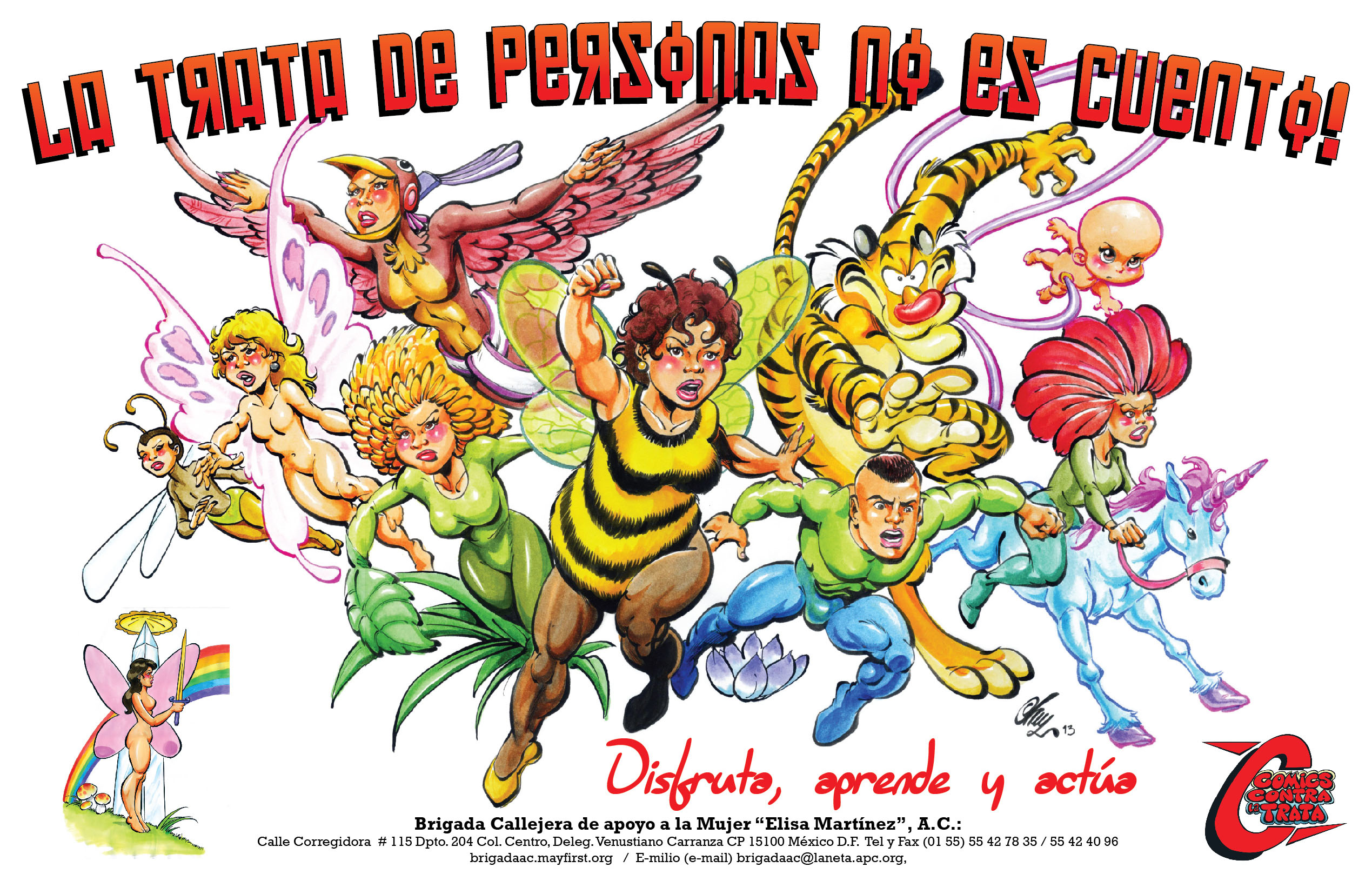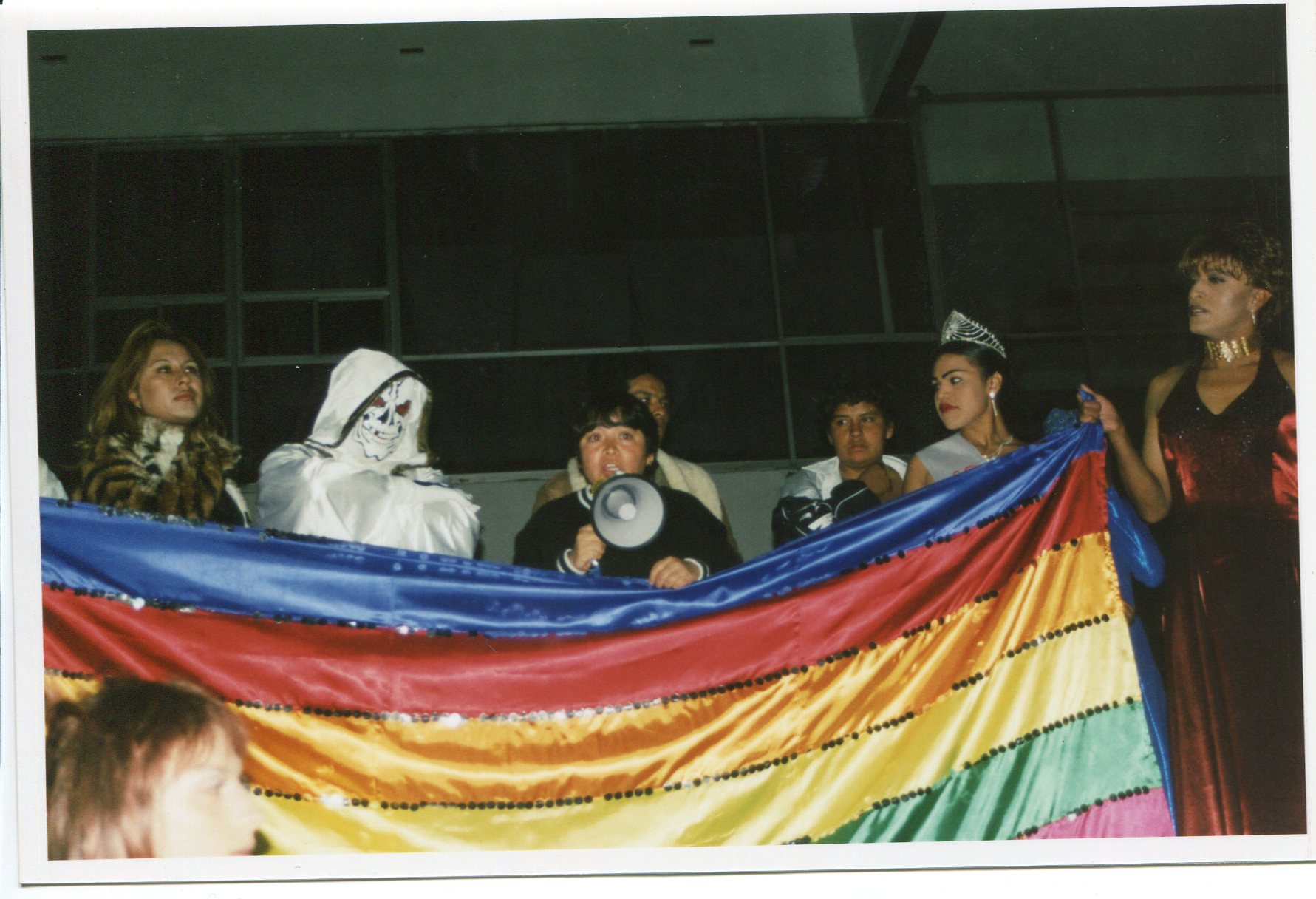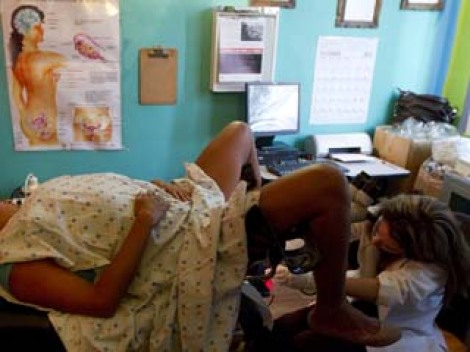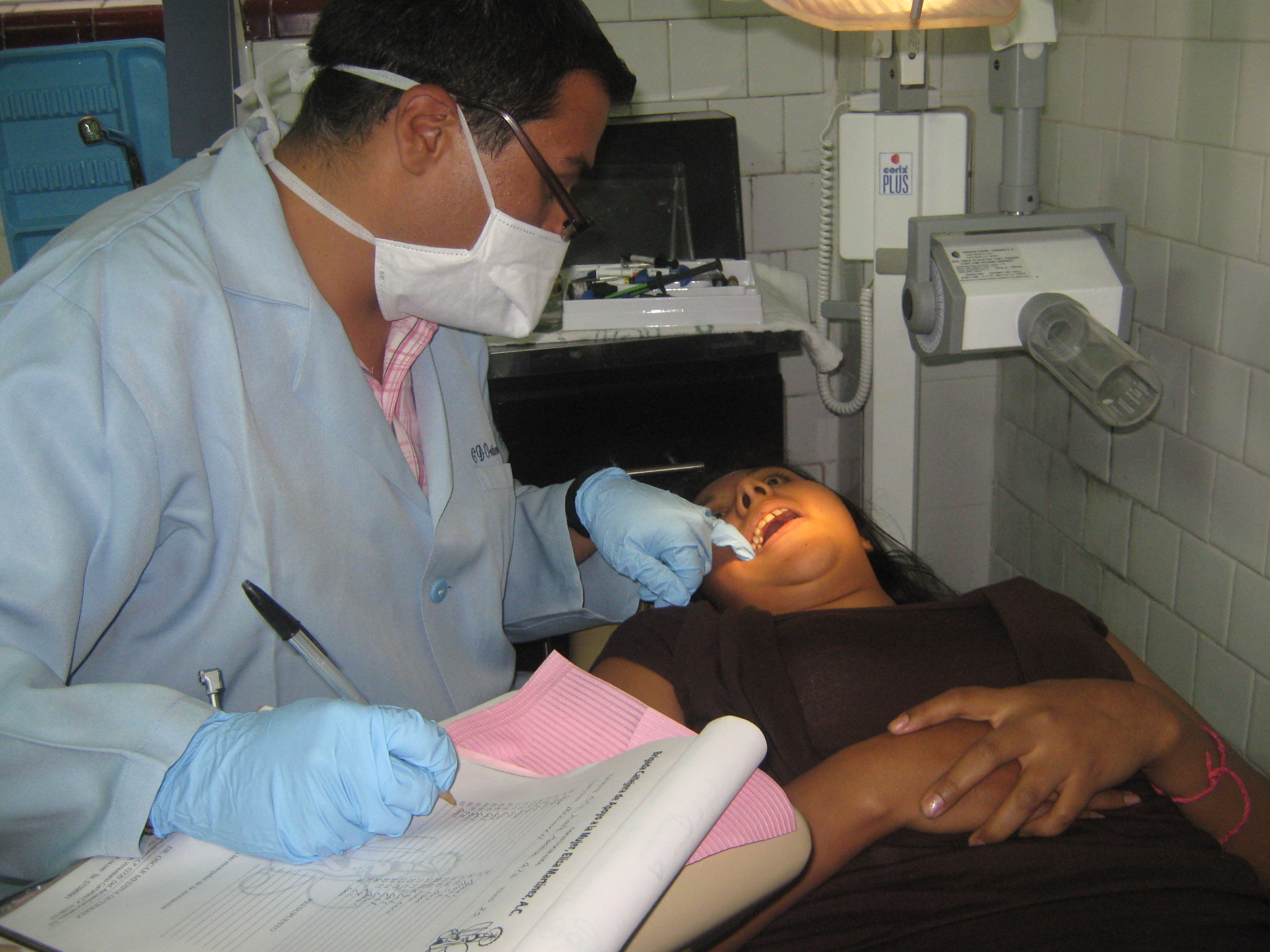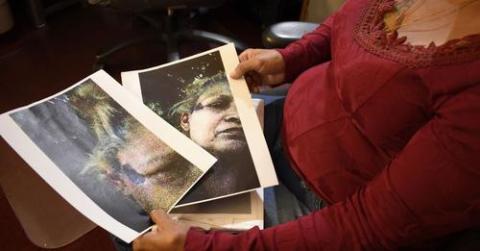
‘Who is going to believe a prostitute?’: How a serial rapist in Mexico City carried out his crimes
Micaela Varela
Azul clearly remembers the day she was raped. The date will always remain in her memory. Not because of the brutality of the attack, or because of the trauma it left, nor because of the fear that has remained in her body ever since. She remembers because, the next day, her mother died.
“I was so beaten up that I didn’t want her to see me like that – that’s why I didn’t go to visit her or say goodbye to her,” she recalls through tears.
At least, in Azul’s case, the blows didn’t leave permanent marks on her face, which is what happened when Alba was attacked. She was assaulted by the same man on March 18, 2021, five months before Azul. She knows that it was the same person because of the phrase he whispered into the back of her neck, while she felt the barrel of his gun pressed against her: “You’re done for.”
These are the same words with which he threatened Valen that same year. He also used that phrase with Mariajó, when he assaulted her a couple of days before Christmas in 2020. And again with Paulina and Yesenia. They all recognize him as the same person: the serial rapist who posed as a client to the sex workers who work along the Tlalpan Causeway, south of Mexico City. He agreed to the price of their services with a smile, then took them to his car or to the hotel. Then, he forced himself on them without a condom, beating them and threatening them with a gun or knife. Last Friday, he was sentenced to 10 years in prison for just one of the crimes, but his method of hunting and more testimonies reveal a modus operandi that he used on countless victims.
After she returned to work on her corner, bearing the scars from the attack, Alba knew that what had happened to her had been experienced by many of her companions. She spoke of her assault with the group of women who work just a few feet away from her. Several recognized the story, the details, the specific phrase and the fear. They had also been victims – but many remained silent. “Who’s going to believe a prostitute?” they repeated. They chose to go back to work and try to forget everything. But Alba couldn’t shake the feeling of terror with each new client. “My daughter is disabled and I work to give her what she needs, but I was afraid that he would come looking for me,” she confesses, holding up the photos that the police took of her injuries.
She met him at the intersection of Unión Postal street and the Tlalpan Causeway, one of the main arteries of Mexico City. This was his hunting ground. The women who work as prostitutes tend to gather in the area that’s south of this major road – there are several cheap hotels around, along with dark alleys where back seats can be used, in case you can’t get a room.
Alba worked there. Her attacker didn’t seem suspicious to her trained eye – she’s accustomed to assessing clients before going off with them on her own. They talked, laughed and went to the Hotel Diana. Entering the room, she asked him to pay her before she provided her service, just as she turned around to close the door. The feeling of the cold metal of the gun on her skin was the sign that everything had gone wrong.
“Instinctively, I nudged him and jumped on the bed, but he grabbed onto my clothes and threw me to the floor,” she says. Dazed, she was dragged across the bedroom carpet, hitting her head hard against the edge of the bed along the way. Despite the shock, she was able to kick him in the testicles when he climbed on top of her, which allowed her to escape.
She had to insist that the hotel employees call the police. According to Alba, they asked her, “Why would you come with him?” This question made her think that she had not been the attacker’s first victim. The police informed her that they couldn’t file a complaint after she explained why she was alone in the room with him. “I left there angry and full of bruises, but I remembered [his licence plate number],” she tells EL PAÍS. When she shared this information with her colleagues, they all decided to create a WhatsApp group to send each other the photos they had of him and the description of the car. They suddenly had a means of letting each other know if they ever saw him on the street.
“They caught him!”
It was thanks to a message in the group chat that all the women went to the police station at the end of March in 2021. “They caught him!” several of the women celebrated. It was a mistake – a coincidence – which led him to be detained by the police. Without realizing it, he tried to repeat the attack with one of his former victims, Azul. She still had a fresh memory of his razor, which pointed menacingly at her belly while he forced her to give him oral sex. She vividly remembers how her head hit the steering wheel when she tried to get out of his car. The tear-choked pleas for him to take pity on her when he demanded anal sex. The two hours walking around afterwards, fearing for her life. The money he stole from her purse and how the police told her she couldn’t file a complaint because she was a “whore.” The only thing she didn’t remember was his face, because the first attack took place in the middle of the pandemic. He had been wearing a baseball cap and a face mask.
She realized who he was when she got into his car for the second time, a year after he raped her. He had painted the vehicle a different color, but it still smelled like Resistol.
“I recognized his eyes. They were marked, as if outlined in black. With a penetrating look, like a murderer. Dangerous,” she recalls. He began to touch her – she was suddenly assailed by the memory of her mother, dying of COVID in the hospital. She remembered declining the nurse’s farewell video call, so that they wouldn’t see her face covered in bruises and dried blood.
“Right then, I told myself that the same thing wasn’t going to happen to me again. We fought and I managed to escape. I stopped a patrol car and told them that he was the man who had raped me a year ago,” she recounts.
They took him to the Investigative Prosecutor’s Office. Amid the commotion of women who recognized him as their attacker and crowded around the building, one of the most veteran prostitutes called the lawyer from the Street Brigade – a civil association that supports sex workers. Arlen Palestina – a lawyer and specialist in sexual and reproductive rights – is deeply familiar with the harassment suffered by women who engage in prostitution work. She has dealt with the contempt that the authorities have of these women, as well as the power of corruption in Mexico’s capital. Hence, Palestina wasn’t surprised when she was told that the rapist was going to be released because he had “paid off the police agents,” she notes.
Upon entering the police station, she recalls how she witnessed one of the prosecutors violently slamming his hand against the table. Sitting there was one of the victims, who wanted to report the man for having assaulted her in the previous year. “He was yelling at her: ‘So he raped you, or he didn’t rape you?’ With zero understanding of gender or humanity,” Palestina laments. According to the lawyer’s testimony, the detainee was encouraged by the attitude of the authorities: he smiled calmly and laughed at the women, who roared with indignation and accused him.
Palestina hopes that the rest of the sentences that follow this first one will fall under modus operandi. Several testimonies coincide regarding the smells, the phrase uttered and the location of the events in question. The victims also look alike: heavyset, dark-haired women. All prostitutes. If she can prove he’s a serial rapist, she’d seek a maximum sentence: life in prison. A punishment that would attempt to be in line with the indignation and fear experienced by the victims, who worry that he could be back on the streets in a decade.
However, the lawyer is concerned about the upcoming trials. Of the victims who have endured whole days giving their testimonies – going through psychologists and forensic doctors, looking for nannies for their children while sitting with the authorities – few are left willing to continue fighting for justice in a country where impunity reigns. Valen, for example, has decided to flee the country in fear – she still doesn’t know when she will be called to testify. She also doesn’t believe that her attacker will face justice. “The police were going to release him because we’re sex workers and people have the right to mistreat us and do whatever they want with us,” she sighs resignedly.
Valen was also present the night the man was arrested. She recognized his tattoos right away. While he was raping her, she used the hotel room’s mirrors to memorize the letters on his arms – a means of mentally escaping from the situation. She is still haunted by the memory of the metallic taste of the gun in her mouth, as she begged him to stop because he was hurting her.
Mariajó – anxiously awaiting justice – joined the group that went to the police station. She was terrified. That subject had assaulted her on December 23, 2020 – a day that she had gone to work “with all her willpower” to earn enough money to buy Christmas gifts for her children. After the rape, she was still harassed by the criminal. He asked her to stop working and be his partner. “I’m longer going to work because of fear,” she admits. Mariajó was one of the six women who stayed to file a formal complaint. However, the rest of the group who accused the man of rape – about 20 women in total, as estimated by Palestina – disbanded. Not all of them had the economic resources required to stop working for all the hours it takes to wait before filing a report.
Mariajó's case was the first to obtain justice. The abuse faced by Azul was also recognized by the court, adding seven years to the serial rapist’s sentence, for a total of 10 years. The rest of the cases are currently stuck in Mexico’s saturated judicial system.
https://english.elpais.com/international/2023-06-22/who-is-going-to-beli...
- Inicie sesión o regístrese para comentar
